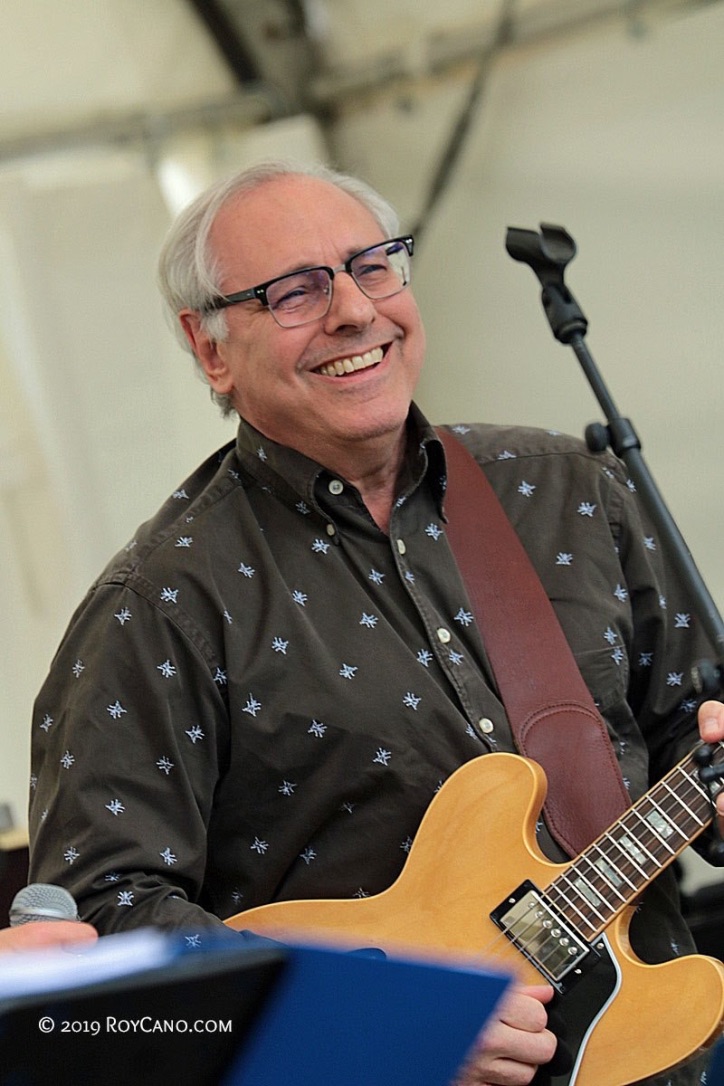Richard Lightman talks about the evolution of his long and varied career and explains how CMAT programmes are designed to launch students on their own successful career paths.
How did you get started in the music industry?
I always wanted to play music. I started playing the piano at the age of four, and around the age of 15 or 16 started playing guitar and joined bands in my area in Canada. I studied music at McGill University in Montreal and then felt I wanted to branch out. I had a friend who was in London playing with Mick Jagger’s brother Chris Jagger and we traded gigs. I then joined other bands and eventually was asked to join Motorhead, which was a pivotal moment in my career, as I decided that I didn’t want that kind of lifestyle; so I focused on being a music producer.
So then you developed a career as a producer?
Yes, among other things! I built a recording studio and still have my production company, Richard Lightman Productions. I also carried on working on and off as a session musician (I play guitar and keyboards). However, when the punk scene hit and people who could actually play instruments weren’t as much in demand, I took a job in a music shop and ended up running a musical instrument hire service. At the time, I imported a new device, a vocoder, from the US and took it with a Moog synthesizer and a mixer to recording studios to demonstrate it. That’s how I met the head of sound for Twickenham film studios. He asked me if I could help with the sound on a film he was working on, which turned out to be Superman 2. I went on to work on the sound for the later Superman films, and as a result, the director, John Landis, asked me to work on creating special sound effects for his film An American Werewolf in London. So, another strand of my career has been as a special sound effects designer for Hollywood films and other media and I’ve also composed soundtracks for adverts and TV shows.
With such a rich and varied industry career behind you, what attracted you to teaching?
I felt I wanted to validate my career. I decided to take a Master’s degree in composition for film and television and ended up teaching on the programme myself. I really enjoyed the process, and was learning from the students as well. I enjoyed that interaction, the sharing of information and ideas, which is what the university ethos is all about. I decided university lecturing was something I wanted to do and eventually arrived here at Kent. I’m still a practitioner and I also sit on a number of industry committees, such as the Rights and Policy Committee for UK Music, The Council of Music Makers and the Regional South East Committee of the Musicians’ Union.
How do you think your industry experience helps students here at CMAT?
I’m the Director of Employability for CMAT and I emphasise to our students that today’s industry requires a portfolio of skills. I use my own career as an example because I’ve had to move with the times, keep on top of the technology and adapt to changing markets. I use my industry contacts and explore various avenues to open up opportunities for my students, and for the university.
How do CMAT’s courses support students to develop that portfolio of skills?
Students might start with an idea that they want to be, say, a drummer but they’re able to explore other avenues within our courses. So, if you can imagine, one student might be doing the music business degree, another is doing the performance degree and somebody else is doing music technology and audio production. At the end of the third year in a collaborative project, the performers are in the recording studio, the technicians are recording the tracks and there’s a group at work devising a marketing plan. However, the drummer in the band, performing, is actually the student who is doing a music business degree. The audio technology student is helping on some social media campaigns. The student behind the desk recording is also in the band. So there’s a cross-fertilisation and a cross-referencing of disciplines within the pathways; it’s not just one specific pathway. That’s the ethos of CMAT.
Finally, what do you think is the value of studying music for a degree rather than simply going out and making music?
OK, I can answer that very simply. What university degrees offer are the skill sets that enable you to research information, assimilate information, organise information, write, and communicate. Now, having those skills within a music arts framework will make a graduate more desirable to employers, even if they decide not to go down the music career path. A musician is a problem solver. A musician does not have the luxury, if something goes wrong, of saying ‘Let’s analyse it’ or getting an expert in to try and fix it. Whether it’s in the recording studio or if it’s live, whatever it is, they fix it; they are problem solvers. That’s a distinct advantage. Also, they have to think outside of the box. They can’t just look at the one area, they have a holistic view of their activity. On top of that they are creative, so they can provide a creative solution for any situation within a company structure – that’s very valuable.
And if people ever say to me ‘Nobody makes any money in music’, I reply ‘The creative industries contributes over £100 billion to the UK economy, £5 billion from music alone. With over 190,000 people employed full time in the music industry, somebody must be making money!’

